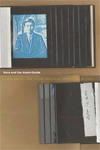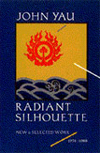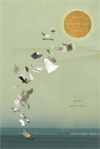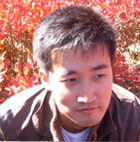Last year, we asked our staff writers to recommend books that they’d read in the last year and thought were worth passing on. This year, we’ve decided to continue with this tradition. In light of that, here are our holiday staff picks for 2010 (poetry, prose and more—yes, we read more than poetry!)
* * *
Recommended by Mia: “This is one of the key critical texts on my reading list for the holidays. I’ve only skimmed the first few chapters, but thus far have found Yu’s argument compelling, his analysis rigorous, and his wide-ranging knowledge of Asian American and Language poetry in the United States to be informative to my own work—not to mention useful in historicizing these two movements/moments in contemporary poetry!
From the Tinfish Editors’ Blog: ‘Using a definition of the avant-garde that has less to do with aesthetics than with social groups composed of like-minded artists, Yu argues that Asian American poetry and Language writing formed parallel movements in the 1970s. […] Both presented themselves in opposition to the mainstream; both were marked by questions of form and racial identity. Both meant to create art out of social groups, and reconstitute the social through the reception of their art.'”
* * *
Radiant Silhouette: New & Selected Work 1974-1988 | John Yau | Black Sparrow Press (1989)
Recommended by Mia: “Yau is one of the two major poets that Timothy Yu addresses in Race and the Avant-Garde (Theresa Hak Kyung Cha is the other), so I’ve been reading through his New & Selected Work for an introduction to the thematic and aesthetic scope of his early career. He’s a fascinating figure in Asian American poetry and, as Yu points out, ‘might best be read as a restoration of the links between politics, form, and race that characterize the avant-garde Asian American poetry of the 1970s [… providing] the first opportunity for most readers to recognize […] the presence of that avant-garde back into the very origins of Asian American writing.'”
* * *
Man on Extremely Small Island | Jason Koo | C&R Press (2009)
Recommended by Iris: “Jason Koo’s style is very different from my own, but this book (his first collection) managed to completely charm me with its quirkiness. The voice of the book’s primary speaker manifests a world-weary exhaustion that is, on the surface, darkly melancholic and painfully self-deprecating. He obsesses over his dirty apartment while eating a tuna sandwich, dreams about floundering clumsily through an encounter with Lucy Liu, envisions himself stranded on an island in the middle of an ocean, worrying about the size of his nose. But beneath the speaker’s (at times endearingly hyperbolic) self-consciousness lies a striking vulnerability and a luminous ability to evoke the fantastic within the mundane: BBQ chip crumbs echo the ‘fine grains / of my slovenliness,’ becoming ‘barbecue pollen,’ and later, ‘orange microbes’ (9); Lucy Liu becomes a motherly goddess figure who guides him through a secret mission, ‘pulling you after her diving into the stage,’ which becomes the arena for an undersea showdown complete with battleships, lingerie models, and harpoons (22) , the island transforms into the kneecap of a giant woman who ‘has no nose. Just a space where mine / can fit’ (77). Part Frank O’Hara, part tragic hero of his own sardonic comic-book series, the speaker’s sense of humor, whimsy, and wonder, as transmitted by Koo’s craft, paint a picture of a world that reinvisions the now-archetypal image behind John Donne’s famous ‘No man is an island’ with simultaneous irreverence and tenderness. ”



